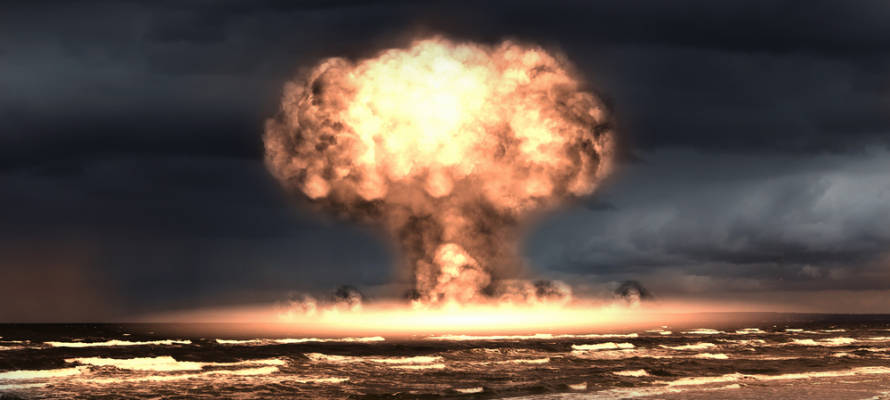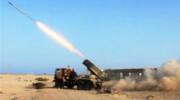While Tehran welcomed the nuclear deal signed with the P5+1 Tuesday, Jerusalem vehemently opposed it. Here’s why.
While the streets of Tehran filled with citizens celebrating the nuclear deal signed between the P5+1 powers and the Islamic Republic regarding its nuclear program, the streets of Jerusalem were somber, with Israel’s leadership calling it a black day in history and the accord an historical mistake.
Israel’s Security Cabinet reviewed the deal with Iran, unanimously rejected it and determined that Israel is not bound by it.
Why is the Deal so Bad?
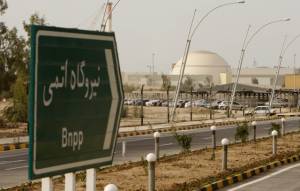
Iran’s Bushehr nuclear plant. (AP/Hasan Sarbakhshian)
The Joint Comprehensive Agreement reached between the P5+1 and Iran endangers Israel’s national security.
Here are the four main problems with the Iran nuclear deal as Israel’s Ambassador to Washington Ron Dermer points out in today’s Washington Post:
First, it leaves Iran with a vast nuclear infrastructure.
Second, the restrictions being placed on Iran’s nuclear program are only temporary, with the most important restrictions expiring in 10 years.
Third, because states throughout our region know that the deal paves Iran’s path to the bomb, a number of them will race to get nuclear weapons of their own.
And fourth, Iran gets billions for its global terror network. As part of the economic benefits of the agreement, Iran will gain access to frozen funds of about $150 billion.
These funds will be used, at least in part, to increase Iran’s subversive activities in the region and its support of terror, including Hezbollah and Hamas, against Israel and its neighbors, as well as to strengthen the oppressive rule of the Ayatollahs.
Iran’s subversive activities in Iraq, Syria, Lebanon and Yemen will only increase, as it will enjoy international legitimacy deriving from this agreement and an empowered status as a threshold nuclear state.
As Dermer emphasizes, “any one of these problems would be sufficient to make this a bad deal. But all four make this deal a disaster of historic proportions.”
Even More Problems with the Iran Nuclear Deal
Other major problems with this deal include:
The deal does not stop Iran’s nuclear development.
The agreement enables Iran to continue its significant enrichment of uranium far beyond any practical civilian needs. Its nuclear program is designed specifically for military, and not civilian, purposes.
These capabilities have been acquired by deception, concealment, and above all, recurring violations of UN Security Council (UNSC) resolutions.
In placing partial constraints for a limited number of years and areas, the agreement only postpones Iran’s acquirement of military nuclear capabilities. When these limitations end, Iran will be able to increase its overall enrichment capacity significantly and rapidly.
The agreement does not adequately limit Iran’s research and development capabilities.
This, particularly with regard to advanced centrifuges. Iran can use its advanced abilities to enrich rapidly and covertly, shortening the time needed to produce a bomb. Iran already has the enrichment capability to produce a bomb. It also has the suitable means of delivering the bomb, using its vast ballistic missiles and advanced guided missiles. Without limitations on its weaponization, the way is paved for Iran to assemble a bomb.
Sanctions on Iran’s weapons acquisition will evaporate.
The agreement curtails UNSC resolutions that imposed an arms embargo on Iran and restrictions on its ballistic missile capabilities. The outcome of such concessions could enable Iran to further develop its missile program and to enhance its conventional military capabilities. The imminent removal of sanctions imposed on Iran eliminates the most efficient leverage that was restricting Iran’s actions and that brought it to the negotiating table in the first place. Maintaining the pressure is the only means of ensuring that Iran will uphold its commitments.
Monitoring of Iran’s nuclear program is not sufficient.
The agreement does not ensure a tight enough monitoring and verification mechanism. Iran will receive a 24-day warning and even then, an inspection will first need to be approved by a joint committee made up of Iranian, American and European negotiators. Iran has achieved its advanced nuclear capability covertly, despite the UN’s International Atomic Energy Agency’s (IAEA) safeguards mechanism, and will be able to continue deceiving and evading foreign inspectors.
In conclusion, nuclear capabilities in the hands of Iran are a game changer and will almost certainly spark a nuclear arms race that will undermine regional security in the Middle East. A nuclear Iran is a threat not only to Israel but also to the moderate countries in the Middle East and well beyond.
A Stunning Historic Mistake
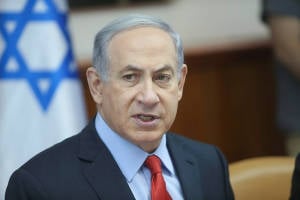
PM Benjamin Netanyahu. (Alex Kolomoisky/Flash90)
“The world is a much more dangerous place today than it was yesterday,” Netanyahu stated at a press conference after the signing of the agreement.
“Amazingly, this bad deal does not require Iran to cease its aggressive behavior in any way,” he pointed out.
“The bottom line of this very bad deal is exactly what Iran’s President Rouhani said today: ‘The international community is removing the sanctions and Iran is keeping its nuclear program.'”
The Islamic Republic will acquire a bomb one way or another in the future, Netanyahu cautioned. “By not dismantling Iran’s nuclear program, in a decade this deal will give an unreformed, unrepentant and far richer terrorist regime the capacity to produce many nuclear bombs, in fact an entire nuclear arsenal with the means to deliver it. What a stunning historic mistake!”
However, “Israel is not bound by this deal with Iran and Israel is not bound by this deal with Iran because Iran continues to seek our destruction. We will always defend ourselves,” the Israeli premier vowed.
By: Max Gelber, United with Israel
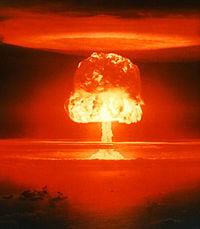
Sign the Petition to Stop a Nuclear Iran
The US Congress must ensure that sanctions against Iran remain in force until the nuclear threat is completely eliminated.
I strongly oppose easing sanctions before the nuclear threat from Iran has been eliminated. Allowing Iran to enrich uranium without being subject to 'anytime, anywhere' inspections is extremely dangerous and unacceptable. Iran's nuclear program must be stopped.
See our Privacy PolicyDo You Love Israel? Make a Donation - Show Your Support!
Donate to vital charities that help protect Israeli citizens and inspire millions around the world to support Israel too!
Now more than ever, Israel needs your help to fight and win the war -- including on the battlefield of public opinion.
Antisemitism, anti-Israel bias and boycotts are out of control. Israel's enemies are inciting terror and violence against innocent Israelis and Jews around the world. Help us fight back!
